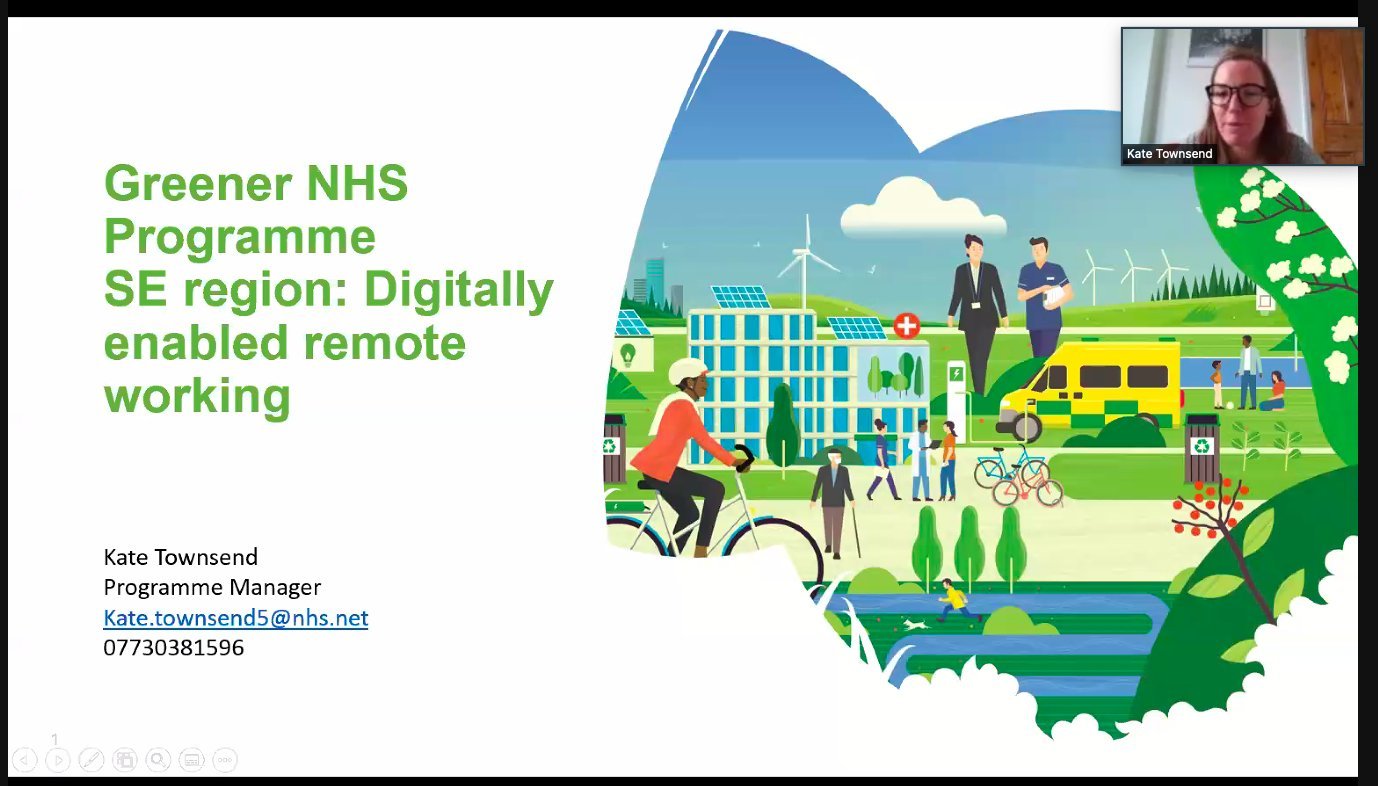Harnessing Innovative GreenTech in the NHS
At the root of sustainable developments, you’ll likely find innovative technologies. The role of GreenTech is currently one of the biggest drivers of sustainable development, and that is no different within the NHS. Much of the needed change required to build a greener future for our NHS is being derived from GreenTech solutions.
There’s a large amount of progress in sustainable technology in relation to healthcare. From wearable MedTech devices to waste reducing machinery in operating theatres, the opportunities are seemingly endless for our NHS. To explore deeper into new, innovative developments we invited industry professionals and leading experts in green medical technologies to discuss how tech can help lead our healthcare system to a greener future in our latest one-hour webinar.
We were introduced to the webinar by our host and co-founder Georgia Halston:
“The most interesting thing about the move towards a sustainable future for me, is looking at how technology can be embraced to build ecological sustainability but also in the way that the staff within the NHS can do their jobs in a more sustainable way.”
Kate Townsend, Programme Manager, Greener NHS, NHS England and NHS Improvement, South East Region
Kate focussed her talk on digitally enabled remote working, currently one of the key priorities within the green agenda. She spoke about the recent speech at the HSH Digital Transformation Summit where they discussed the aim to use technology to level up across the NHS and social care, although Kate mentioned that she was disappointed at the lack of mention of sustainability within this.
““I think one of the key themes throughout the presentation is that it’s really, really important to ensure the green agenda and sustainability agenda is embedded as we think about digital transformation.””
“Digitization has been chosen to minimise carbon emissions by expanding digital models of care.”
She ran through the sustainability priorities at present within the southeast region including digitally enabled remote working, medicines and travel and transport. She then explained some of the focus projects such as remote care homes and virtual mental health offers.
Kate then spoke to our attendees about how we can engrain these systems into the current healthcare infrastructure and the different ways in which this will benefit the NHS, patients, and the planet.
“What’s really exciting about this as the use of digital technology is, we can move towards being a more preventative healthcare system so tackling problems before they become acute.”
Kate finished off her presentation talking through the imperative need to tackle the issues surrounding digital inequalities. For example, if a patients first language is not English or they struggle with the use of technology, this must all be considered in a move towards a more digitised NHS.
Lugano Kapembwa, Co-Founder and CEO of Loopcycle
Lugano kicked off his presentation with an introduction to LoopCycle and how they work to connect an ecosystem of manufacturers and operators to trace, manage and recover products across their lifecycle.
Loopcycle believe in building an ecosystem of shared value, and they do as such in three stages. Starting with the manufacturer from the point of production, the manufacturer can trace a product through a unique code of provenance through to the operator.
“The problem that we’re addressing really is this lack of visibility in b2b value chains.”
He explained how there are blockers to asset recovery within existing systems in place as most operations lose track of where their assets are, and manufacturers claim to only know where around 20% of their products end up. And therefore most don’t have access to the equipment needed to support having products recovered at end of life.
“The drivers for asset managers to find or improve inventory management are around better asset management systems and innovative data collection. And that really is the place where we play.”
Lugano then went on to explain how Loopcycle’s solution can benefit the NHS specifically. He explained that the NHS is currently spending a large amount of money on obsolete products. But with Loopcycle’s system, it is possible to calculate the best point for a hospital to replace assets with more efficient products.
“What’s really significant here is data from the MacArthur Foundation that says that 45% of carbon reductions required are around the management and production of products. And so, by responsibly managing and commercialising obsolete products, it’s not just key to achieving carbon and carbon reduction targets, but also in reducing costs as well.”
Piyush Mahapatra, Director of Innovation at Open Medical, Orthopaedic Surgeon, NHS Clinical Entrepreneur and Green Champion at West Hertfordshire Hospitals NHS Trust
Piyush focussed his presentation on digital transformation. He began by talking through the environmental impact created by operating theatres.
He explained that one of the key take homes from digital for the NHS should be transparency within the clinical care environment, to aid people in making better and more informed decisions. He then spoke through the work that West Hertfordshire Trust have been doing looking at technology to manage the electrosurgical backlog.
“At West Hert’s we really wanted to try and streamline the whole surgical process from start to finish and end up creating a cloud based surgical service which allows regional movement to patients between different sites into operated with all of the existing infrastructure and digital systems in place.”
This webinar discussed the future of sustainability in the NHS and what is expected to happen in 2022 as progress is made in the sustainability agenda. Development of alternatives and enacting change within our healthcare system will require collaborative approaches. If you would like more information, please contact us.
“There’s multiple stakeholders, multiple touch points, the equipment we use is particularly high tech with significant environmental impact. And then there’s the impact of anaesthetic gases, that’s pretty well known.”
Piyush gave us some great insight into sustainable decision making and the work being done within West Hert’s to move this practice forwards.




